By Michael Jorgensen
Just stay in the moment
Recently, I found myself going back through various clips from ESPN’s The Last Dance on Netflix for a side project I am working on. One particular moment stuck with me in the days that followed and motivated me to write this article. I’ll set the stage.
In the final episode, we find Michael Jordan sitting at a piano, casually playing a few notes as he smokes a cigar, basking in the celebratory atmosphere of the Chicago Bulls’ second three-peat victory. Surrounded by lights, cameras, and people, Jordan is asked if he “has another [championship] in him”. His response comes swiftly and provides the viewer with a glimpse of the champion mindset maintained by Jordan and the Chicago Bulls.
“Come on, man. It’s the moment. It’s the moment. …You’ve got to get in the moment and stay here. Just stay in the moment.”
In this instance, Jordan is referring to being in the moment of celebration. Though, if you have watched The Last Dance or read any of the books written by former Bulls head coach Phil Jackson, you would recognize the ubiquity of this mindset on the court. In a brief interview following the release of the docuseries, George Mumford, mental performance consultant for the Bulls during this time, succinctly describes this as a “success is now” mentality – every moment is an opportunity for success, so focus on now. In other words:
Being mentally present enhances performance in the athletic arena
This awareness of the present moment is referred to as Mindfulness, a term that has become somewhat diluted in recent years. It is often used interchangeably with meditation and other similar practices, and though these practices are useful in developing Mindfulness, they are conceptually distinct from one another. In simple terms, Mindfulness is defined as a present time, non-judgemental awareness. To be non-judgmental is to adopt an open curiosity to the thoughts and feelings one is experiencing. Rooted in Buddhist teachings, mindfulness comes from the Sanskrit word smrti, which means “to remember” – it is remembering to come back to the present moment. In the context of sport and performance, this can be described as:
“Attention to the ‘now’ that is flexible, fluid, and voluntary” 1
To be Mindful is to consider the past and the future, but to keep bringing our attention back to the present. In this sense, it can be thought of as an action we choose to engage in over and over again, rather than a constant state of being. Dr. Steven Hayes, the author of A Liberated Mind, describes the past and future as present fictions. Our concerns about the future are present concerns. Our memories of the past are reconstructed in the present. Human experience happens in the now, and yet, we often have a difficult time embracing this fact of life. 1

Take a minute and think back to a moment in your life, athletic or otherwise, when you performed to the fullest of your ability. Most people would include some detail of how they were fully absorbed in the moment, as is reflected in the Michael Jordan quote above. Did time slow down? Perhaps there was a rhythm to your actions; a harmonization of body and mind. Former 2x MLB All-Star Shawn Green had this to say about his experience with peak performance in his book entitled The Way of Baseball: Finding Stillness at 95 mph:
“The truth is that while I was in the zone, I moved beyond the whole competition aspect of hitting. Absorbed in the act, it no longer mattered to me what team I was playing against or who was on the mound. There was only this: the ball came at me in slow motion, and I hit it. As the pitcher released the ball there was no me, no him, no bat, and no ball. All nouns were gone, leaving only one verb: to hit.” 2
What Green is describing sounds like a transcendental experience. Yet when we perform at our best do we not feel confident, competent, and as though we are fulfilling a higher purpose? Mindfulness supports this by enhancing one’s sensitivity to cues and contingencies in the environment. It promotes greater attentional and behavioural flexibility3. Additionally, Mindfulness practice has been found to reduce our stress response and risk for injury through a down-regulation of the amygdala and sympathetic activations4. Programs such as Gardner and Moore’s MAC3 approach or Hayes’ ACT1 approach offer a structured set of methods for improving one’s Mindfulness practice (among other things) and are slowly becoming more common in the context of competitive sport and athlete development.
As athletes, very rarely do we experience drastic changes in our athletic abilities from one week to the next. Our foundational skills remain relatively stable and often improve in small increments at a time. Yet, week to week our performance can vary greatly. Though external factors certainly play a role, as do internal, physiological factors such as hydration, we often overlook the impact that our psychological preparedness has on our ability to compete. Exploring the psychological side of your training may provide a newfound consistency to your game. It may reignite your love for the sport, or aid your recovery from injury. That begins with being present. Simply put:
Mindfulness matters
- Hayes, S. (2019). A Liberated Mind
- Green, S. (2012). The Way of Baseball: Finding Stillness at 95 mph
- Gardner, F. L., & Moore, Z. E. (2007). The Psychology of Enhancing Human Performance: The Mindfulness-Acceptance-Commitment (MAC) Approach
- Ivarsson, A., Johnson, U., Andersen, M., … & Ivarsson, A. (2017). Psychosocial Factors and Sport Injuries: Meta-analyses for Prediction and Prevention. Sports Medicine (Auckland, N.Z.), 47(2), 353–365.

